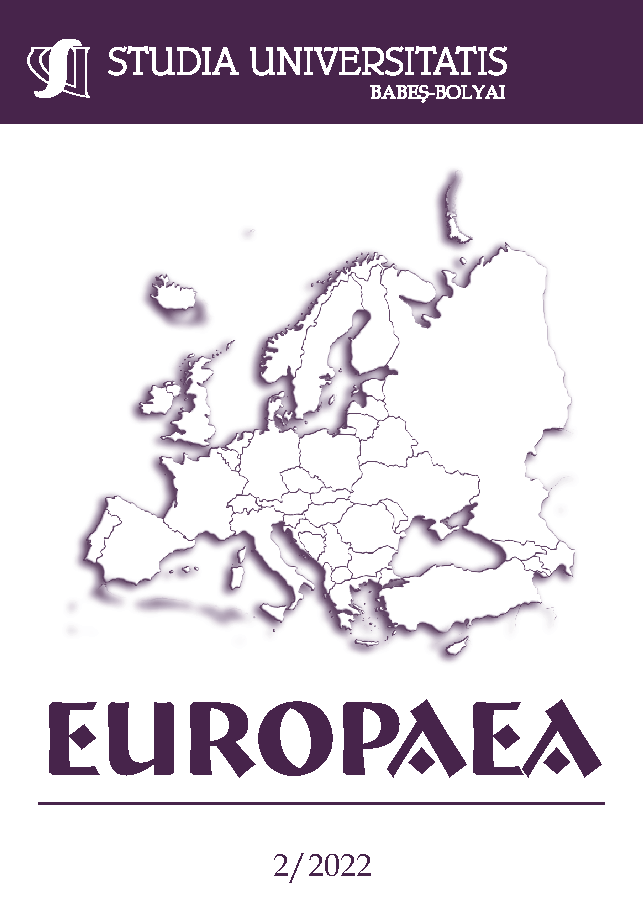ELECTIONS AS A MECHANISM OF PEACE. THE CASES OF LIBERIA AND THE CENTRAL AFRICAN REPUBLIC
DOI:
https://doi.org/10.24193/subbeuropaea.2022.2.03Keywords:
elections, peace studies, post-conflict development, peace building, systemic violence.Abstract
The paper analyses the normative and empirical capacity of elections to function as a peace mechanism in the early stages of the recovery period. Accordingly, the analysis is based on a theoretical framework that draws attention to the timing of elections in post-conflict societies. Moreover, in order to operationalize such theoretical aspects, the paper focuses on two relevant case studies: the 1997 elections in Liberia (perceived as post-conflict) and the 2020-2021 elections in The Central African Republic (early peace process – not void of conflict). Accordingly, the paper poses the following research questions: How was the prospect of organizing these rounds of election received by the parties involved in the conflict? How did these rounds of election relate to the peace process? Do elections represent an adequate mechanism to achieve positive peace in post-conflict societies?
References
Adebajo, Adekeye (2002), Building Peace in West Africa: Liberia, Sierra Leone, and Guinea-Bissau. Boulder: Lynne Rienner Publishers.
Armed Conflict Location & Event Data Project (ACLED) (2002), www.acleddata.com, accessed on November 22, 2022.
Bertelsmann Stiftung (2011), BTI 2022 Country Report — Central African Republic, Gütersloh: Bertelsmann Stiftung.
Brancati, Dawn; Snyder, Jack L. (2011), “Rushing to the Polls: The Causes of Premature Postconflict Elections”, Journal of Conflict Resolution, 55(3), 469–92.
“Central African Republic” International Institute for Democracy and Electoral Assistance, https://www.idea.int/data-tools/country-view/75/40, accessed November 20, 2022.
“Central African Republic: Don't Reward Warlords”, Human Rights Watch, April 14, 2019. https://www.hrw.org/news/2019/04/24/central-african-republic-dont-reward-warlords#, accessed on November 20, 2022.
Central African Republic Constitutional Court (2020), Decision No. 003/CC/21 - Announcing the Final Results of the First Rounds of the Presidential Election of December 27, 2020.
Cleaver, Gerry; Massey, Simon (2006), “Liberia: A Durable Peace at Last?” in Oliver Furley and Roy May (eds.), Ending Africa's Wars: Progressing to Peace, Aldershot: Ashgate, 179–199.
“Déclaration préliminaire du Réseau Arc-en ciel (RAC) sur les élections présidentielle et législatives couplées du 27 Décembre 2020 en République Centrafricaine” [“Preliminary statement of the Rainbow Network (RAC) on the coupled presidential and legislative elections of December 27, 2020 in the Central African Republic”], Réseau Arc-En Ciel, December 30, 2020.
“Elections in Liberia.” African Elections Database, https://africanelections.tripod.com/lr.html, accessed on November 13, 2022.
Etahoben, Chief Bisong (2020), “Central African Republic: 3R Rebels in Accused of Perturbing Electoral Registration.” HumAngle Media, September 1, 2020, https://humanglemedia. com/central-african-republic-3r-rebels-in-accused-of-perturbing-electoral-registration/, accessed on November 20, 2022.
Flores, Thomas Edward; Nooruddin, Irfan (2012), “The Effect of Elections on Postconflict Peace and Reconstruction”, The Journal of Politics, 74 (2), 558–570.
Handy, Paul-Simon (2021), “Car Elections Expose the Depth of the Country's Crisis”, Institute for Security Studies Africa, January 13, 2021, https://issafrica.org/iss-today/car-elections-expose-the-depth-of-the-countrys-crisis?utm_source=BenchmarkEmail&utm_campaign=ISS_Today&utm_medium=email, accessed on November 24, 2022.
Harris, David (2014), Civil War and Democracy in West Africa: Conflict Resolution, Elections, and Justice in Sierra Leone and Liberia. London: I.B. Tauris.
Harris, David (1999), “From ‘Warlord’ to ‘Democratic’ President: How Charles Taylor Won the 1997 Liberian Elections”, The Journal of Modern African Studies 37(3), 431–455.
Ikomi, Emmanuel Oritsejolomi (2007), Implementation of Abuja II Accord and Post-Conflict Security in Liberia, Monterey, CA: Naval Postgraduate School.
Knoope, Peter; Buchanan-Clarke; Stephen; Arnould, Valerie (2020), “Going the Extra Mile for the 2020 Elections in the Central African Republic”, Egmont Africa Policy Brief, 32.
“Liberia: Election Commentary”, University of Pennsylvania – African Studies Center, August 16 1997. https://www.africa.upenn.edu/Urgent_Action/apic_81697.html, accessed on November 14, 2022.
Lyons, Terrence (1998), “Peace and Elections in Liberia”, in Krishna Kumar (ed.), Postconflict Elections, Democratization, and International Assistance, Boulder: Lynne Rienner, 177–194.
“Regional Response – Central African Republic Situation”, Operational Data Portal – UN Refugee Agency (UNHCR). https://data.unhcr.org/en/situations/car, accessed on November 20, 2022.
Reilly, Benjamin (2004), “Elections in Post-Conflict Societies”, in Edward Newman; Roland Rich (eds.). The UN Role in Promoting Democracy between Ideals and Reality, New York: United Nations University Press, 113-134.
United Nations Security Council (2019), Political Agreement for Peace and Reconciliation in the Central African Republic. February 15, 2019.
Downloads
Published
How to Cite
Issue
Section
License
Copyright (c) 2022 Studia Universitatis Babeș-Bolyai Europaea

This work is licensed under a Creative Commons Attribution-NonCommercial-NoDerivatives 4.0 International License.



